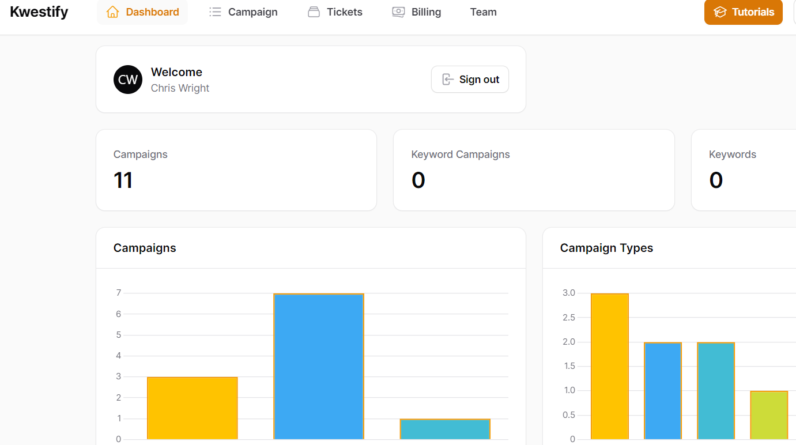
Affiliate marketing seems like a daunting task, but fear not, because getting started is easier than you think. This article will walk you through the basics of affiliate marketing, from finding the right niche to choosing the perfect products to promote. With our step-by-step guide, you’ll soon discover the secrets to success in this lucrative online business. So, if you’re ready to embark on a thrilling journey towards financial independence, let’s dive right in and uncover the world of affiliate marketing together.
Choosing a Niche
Identify your interests and passions
When starting out with affiliate marketing, it’s important to choose a niche that aligns with your interests and passions. This will not only make the process more enjoyable for you, but it will also enable you to create high-quality content that resonates with your audience. Take some time to brainstorm and make a list of topics you are genuinely passionate about.
Research potential affiliate niches
Once you have identified your interests, it’s time to conduct thorough research on potential affiliate niches within those areas. Look for niches that show potential for profitability and have a target audience that is large enough to support your efforts. Consider factors such as market demand, competition, and trends in order to make an informed decision.
Consider competition and market demand
While it’s important to choose a niche that you are passionate about, it’s also crucial to consider the level of competition and market demand within that niche. A niche with high competition and low market demand may be difficult to break into, while a niche with low competition and high market demand may offer greater opportunities for success. Strike a balance by choosing a niche that has a decent level of market demand and manageable competition.
Finding Affiliate Programs
Join affiliate networks
One of the easiest ways to find affiliate programs is by joining affiliate networks. These networks act as intermediaries between affiliates and merchants, offering a wide range of programs across various niches. Some popular affiliate networks include Amazon Associates, ShareASale, and Commission Junction. Joining these networks will provide you with access to a multitude of affiliate programs to choose from.
Search for affiliate programs online
In addition to affiliate networks, you can also search for affiliate programs online. Many companies have their own affiliate programs that you can join directly. Simply search for “[company name] affiliate program” on your preferred search engine to find opportunities in your chosen niche. Be sure to carefully review the terms and conditions of each program to ensure it aligns with your goals and requirements.
Consider niche-specific affiliate programs
Certain niches may have niche-specific affiliate programs that offer higher commission rates or more tailored products. These affiliate programs are specifically designed for affiliates operating within a particular niche and can provide you with unique advantages. Research if there are any niche-specific affiliate programs available in your chosen niche and consider joining them for potential benefits.
Building a Website
Choose a domain name
Choosing the right domain name for your website is crucial as it will be the online identity of your affiliate marketing business. Consider selecting a domain name that reflects your niche or brand, is easy to remember, and is preferably a .com extension. Make sure the domain name is available and not trademarked by another company. Use domain registration services to secure your chosen domain name.
Select a web hosting service
To make your website accessible to visitors, you will need to select a web hosting service. Comparing features, reliability, and customer support of different hosting providers will help you make an informed decision. Some popular web hosting providers include Bluehost, SiteGround, and HostGator. Consider factors such as server speed, uptime, and scalability when choosing a hosting service.
Design and structure your website
Once you have set up your domain and hosting, it’s time to design and structure your website. Choose a user-friendly content management system (CMS) such as WordPress, which offers a wide range of customizable themes and plugins. Select a theme that aligns with your niche and brand, and customize it to create a visually appealing and intuitive website. Organize your content into relevant categories and ensure easy navigation for visitors.
Creating Quality Content
Write informative and engaging articles
One of the key components of successful affiliate marketing is creating high-quality content that adds value to your audience. Write informative and engaging articles that educate and entertain your readers. Make sure your content is well-researched, reliable, and addresses the needs and pain points of your target audience. Use a conversational and friendly tone to establish a connection with your readers.
Optimize your content for search engines
In order to drive organic traffic to your website, it’s important to optimize your content for search engines. Research and incorporate relevant keywords into your articles to increase your chances of ranking high in search engine results. Use tools like Google Keyword Planner or Ubersuggest to find keywords with decent search volume and low competition. Additionally, optimize your article titles, headings, meta descriptions, and URL structures for better search engine visibility.
Include affiliate links within relevant content
To monetize your website through affiliate marketing, it is important to include affiliate links within your content. Embed affiliate links strategically within your articles, making sure they are relevant and add value to your readers. Avoid excessive and intrusive placement of affiliate links, as it may hurt the user experience. Ensure that your affiliate links are properly disclosed to your readers as per ethical guidelines.
Growing Your Audience
Implement SEO strategies
To grow your audience, it’s essential to implement effective search engine optimization (SEO) strategies. Continuously optimize your website for search engines by improving site speed, optimizing meta tags, and building high-quality backlinks from reputable websites. Regularly publish fresh and relevant content, including blog posts, guides, and infographics, to attract organic traffic.
Promote your content on social media
Social media platforms offer a great opportunity to promote your content and reach a wider audience. Create social media profiles for your website on platforms such as Facebook, Twitter, Instagram, and LinkedIn. Share your articles, engage with your followers, and participate in relevant communities and groups. Utilize social media advertising options to further boost your content reach.
Engage with your audience through email marketing
Building an email list is an effective way to engage with your audience and nurture relationships. Offer valuable content such as ebooks, newsletters, or exclusive discounts in exchange for visitors’ email addresses. Utilize an email marketing service to automate email campaigns and send regular updates, promotions, and personalized content to your subscribers.
Driving Traffic to Your Website
Utilize search engine optimization
Continuously optimizing your website for search engines is crucial for driving organic traffic. Implement on-page and off-page SEO strategies such as keyword research, content optimization, link building, and guest blogging. Regularly monitor your website’s performance in search engine rankings and make necessary adjustments to improve visibility.
Leverage social media marketing
Social media platforms offer immense potential for driving traffic to your website. Create compelling and shareable content, engage with your audience, and utilize social media advertising options to target specific demographics. Collaborate with influencers in your niche to tap into their followers and expand your reach.
Invest in paid advertising
Paid advertising can provide an immediate boost to your website traffic. Consider investing in platforms like Google Ads or Facebook Ads to run targeted ad campaigns. Set up conversion tracking to measure the return on investment (ROI) of your ad spend and optimize your campaigns based on performance.
Monitoring and Analyzing Performance
Track your affiliate links and conversions
Regularly monitor and track the performance of your affiliate links and conversions. Use affiliate tracking software or the built-in tracking tools provided by affiliate networks to measure clicks, sales, and commissions generated through your affiliate links. Analyze which products or promotions are performing well and adjust your marketing strategies accordingly.
Use analytics tools to assess website performance
Utilize website analytics tools such as Google Analytics to gain insights into your website’s performance. Track important metrics like website traffic, bounce rate, average time on site, and conversion rate. Analyze this data to identify areas for improvement, understand user behavior, and make informed decisions to optimize your website.
Make data-driven optimizations
Based on the performance data and analytics insights, make data-driven optimizations to your website and marketing strategies. Test different variations of your content, landing pages, and promotional tactics to see what resonates best with your audience. Continuously refine and iterate your approaches to achieve better results.
Building Relationships with Affiliate Managers
Reach out and introduce yourself
Building relationships with affiliate managers can be beneficial in many ways. Reach out to them, introduce yourself, and express your interest in promoting their products or services. Explain how you can add value to their brand and target audience through your affiliate marketing efforts.
Seek guidance and advice
Affiliate managers are experts in their respective programs and industries. Don’t hesitate to seek their guidance and advice on how to optimize your marketing strategies and improve your results. They can provide valuable insights, promotional materials, and exclusive offers. Maintain regular communication to stay updated on new promotions or partnerships.
Negotiate commission rates
Once you have established a rapport with affiliate managers and have proven your value as an affiliate, don’t be afraid to negotiate commission rates. If you are consistently driving significant sales or have a unique value proposition, you may be able to secure higher commission rates. Remember to approach these negotiations professionally and provide data to support your request.
Continuously Learning and Improving
Stay updated on industry trends and strategies
The world of affiliate marketing is constantly evolving. Stay updated on industry trends, best practices, and new strategies by following reputable blogs, podcasts, and forums. Join online communities and engage in discussions to learn from experienced affiliates. Embrace a growth mindset and be open to adapting your strategies as the industry evolves.
Attend affiliate marketing conferences and events
Attending affiliate marketing conferences and events is a great way to network with industry professionals, gain valuable insights, and stay ahead of the curve. These events often feature keynote speakers, workshops, and networking opportunities that can help you enhance your knowledge, expand your network, and discover new opportunities.
Experiment with different marketing techniques
Don’t be afraid to experiment with different marketing techniques to find what works best for your audience and niche. Test various content formats such as videos, podcasts, or case studies. Explore new promotional channels or affiliate programs. Keep track of the results and iterate based on the data you collect.
Ensuring Legal and Ethical Practices
Disclose affiliate relationships
It’s important to disclose your affiliate relationships to your audience to maintain transparency and ethical practices. Clearly state that you may earn a commission through your affiliate links and provide this information prominently on your website and within your content. Building trust with your audience is crucial for long-term success in affiliate marketing.
Comply with GDPR and other privacy regulations
Ensure that your website is compliant with relevant privacy regulations such as the General Data Protection Regulation (GDPR). Obtain consent from your website visitors before collecting their personal data and clearly communicate your data handling practices. Familiarize yourself with the specific requirements and guidelines laid out by the regulatory authorities in your jurisdiction.
Avoid unethical marketing practices
While it’s important to be proactive in promoting your affiliate offers, it’s equally essential to avoid unethical marketing practices. Never engage in deceptive or misleading tactics to drive traffic or increase conversions. Respect your audience’s privacy, adhere to spam laws, and always prioritize the best interests of your readers when promoting products or services.
By following these steps and consistently working on improving your skills and strategies, you can build a successful affiliate marketing business. Remember to stay focused, be patient, and enjoy the process as you turn your passions into profit. Good luck on your affiliate marketing journey!






